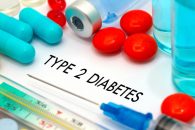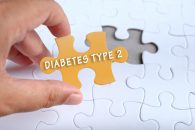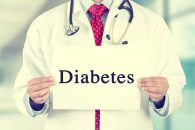Do you believe you are able to recognize the early signs of type 2 diabetes? Managing your disease is key on maintaining a good health.
Suffering from any kind of ailment – chronic or not – can be stressful and in many cases, it could be life changing. In the case of diabetes, being able to recognize the early signs of type 2 diabetes can make a huge difference in how we process and manage this illness, and how well we are able to maintain our health from the very beginning.
In many cases, a patient may experience type 2 diabetes symptoms and may dismiss them as something temporary or imagine that they may be cause of something else and not as important.
This often leads to people being undiagnosed for a long period of time, suffering from failing health, cardiovascular problems and facing the possibility of developing a number of risk factors that are often associated with the disease.
That is why it is important to be able to recognize and understand the symptoms of diabetes type 2 in adults, and get immediate medical attention and guidance from a Specialist.
Early signs of type 2 diabetes can often be categorized into two major groups: the most common symptoms, and those that present themselves more as an emergency situation.
The most common type 2 diabetes symptoms are often mistaken for something else, because they do not seem to be that excessive or strange. These include:
- Increased thirst, in many cases it can be considered excessive;
- Frequent urination, especially during the night;
- Unexplained fatigue or tiredness;
- Being hungry all the time, even after meals;
- Blurry vision.
Symptoms of diabetes type 2 in adults that go undiagnosed for a significant period of time can lead to:
- A higher risk of heart disease;
- Eye problems and diseases;
- Bladder and kidney infections;
- Skin problems;
- Nerve damage.
If these early signs of type 2 diabetes are not identifiable, a patient simply dismisses them as being something temporary, they often lead to those emergency situations mentioned above. In those cases, a patient may experience:
- Excessive hunger;
- Heavy sweating for no apparent reason;
- Dizziness and lightheadedness;
- Shakiness or muscle spasms;
- Headaches;
- Trouble thinking or coordinating ideas;
- Increased heart beat;
- Mood swings.
Getting an early diagnosis is ideal to be able to manage the disease on its early stages. Moreover, understanding what the ailment entails, what it does, how it develops and the requirements on your diet and activity levels is key in staying healthy and on track.
In many cases, an undiagnosed case of type 2 diabetes can lead to long-term damage to your body and system. Obtaining medical support is key in identifying what type of treatment will work best for your case, whether or not you will need to take certain medications and what types of adjustments must be done to your lifestyle.
More often than not, your yearly physical exam will include a test for diabetes, just like it would one for your kidney function, liver function, thyroid, cholesterol, blood pressure, etc.
If you are diagnosed with type 2 diabetes, whether or not you need to take insulin will be identified by several different factors, including your diet.
A healthy and balanced diet is one of the first adjustments one is required to make when diagnosed with type 2 diabetes. A meal plan that focuses on lean proteins, vegetables, fruits and whole grains is the best one, since it is low-fat and higher in fiber.
In addition, your doctor may recommend the usage of a low-glycemic index foods to help you maintain and regulate your blood sugar levels throughout the day, and avoid any unpleasant situations.
Finally, increasing your daily activity level will also play an important role on your diabetes management plan, as exercising for at least 30 minutes a day helps reduce and regulate your blood sugar levels and avoid unwanted spikes throughout your day.
Sources:
https://www.webmd.com/diabetes/diabetes-warning-signs#1
https://www.everydayhealth.com/type-2-diabetes/symptoms/warning-signs-of-type-2-diabetes/
https://www.medicinenet.com/type_2_diabetes/article.htm
https://www.webmd.com/diabetes/type-2-diabetes-symptoms
https://www.healthline.com/health/type-2-diabetes/recognizing-symptoms



